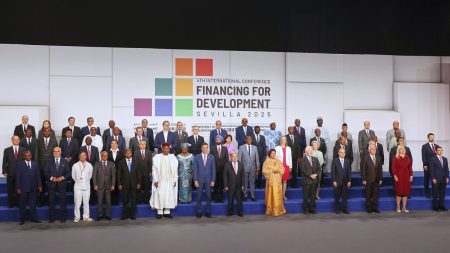The European Commission’s ambitious proposal to overhaul energy taxation within the EU, aiming to accelerate the transition towards greener energy sources and achieve net-zero carbon emissions by 2050, has encountered significant resistance from member states, stalling its progress. This proposal, a key component of the Fit-for-55 package, seeks to modernize outdated rules on electricity and fuel levies, which have remained untouched since 2003. The core objective is to incentivize the adoption of sustainable energy alternatives by increasing taxes on fossil fuels, thereby making them less economically attractive compared to cleaner options. However, the requirement for unanimous approval from all 27 EU members has created a deadlock, leaving this crucial piece of legislation in limbo.
A major point of contention revolves around the taxation of aviation and shipping fuels. Currently exempt under international agreements, these sectors have traditionally enjoyed a tax advantage. The Commission’s proposal sought to end this exemption, at least for intra-EU travel, arguing that the aviation and maritime industries should contribute their fair share to the fight against climate change. This move was met with strong opposition from countries heavily reliant on tourism, such as Greece, Italy, and Cyprus, who expressed concerns about the potential negative impact on their competitiveness. They argued that raising taxes on these fuels would increase the cost of travel, potentially diverting tourists to non-EU destinations like Turkey or North Africa, where such taxes wouldn’t apply.
Hungary’s attempt to break the impasse by suggesting the retention of the aviation and shipping fuel tax exemption further complicated matters. While intended to appease those concerned about competitiveness, this proposal drew sharp criticism from environmental groups and some EU officials, who deemed it counterproductive to the overall goal of reducing emissions. Wopke Hoekstra, the EU Commissioner responsible for both tax and climate policy, highlighted the disparity between the high tax rates on petrol for cars and the complete absence of tax on kerosene for planes, emphasizing the need for fairness and shared responsibility amongst different sectors. He argued that if one sector contributes less to emissions reduction efforts, others must compensate by doing more.
The issue of energy taxation is further complicated by its political sensitivity. The memory of the Yellow Vest protests in France, triggered by a green levy on petrol and diesel, serves as a stark reminder of the potential for public backlash against such measures. Similar unpopular tax hikes have contributed to the downfall of governments in recent years, highlighting the delicate balancing act required between environmental goals and public acceptance. This sensitivity is exacerbated by the recent surge in inflation, partly fueled by high energy prices, making any further increases in energy costs politically risky.
Despite the persistent disagreements, there remains a glimmer of hope for progress. While acknowledging the challenges in navigating conflicting demands, Mihály Varga, Hungary’s finance minister, expressed optimism that discussions are moving in the right direction. He emphasized the need for continued work on the energy taxation directive, suggesting a willingness to find common ground despite the existing divisions. Countries like France, Sweden, and Denmark are pushing for a more ambitious law, reflecting a growing recognition of the urgency of addressing climate change.
The future of the energy taxation reform remains uncertain. The challenge lies in finding a solution that effectively balances environmental objectives with economic considerations and public acceptance. Overcoming the resistance from member states concerned about competitiveness, while addressing the legitimate concerns about the potential impact on consumers, requires careful negotiation and compromise. The success of the EU’s ambitious climate goals hinges on the ability of its members to bridge these divides and agree on a unified approach to energy taxation that fosters the transition towards a sustainable future.














